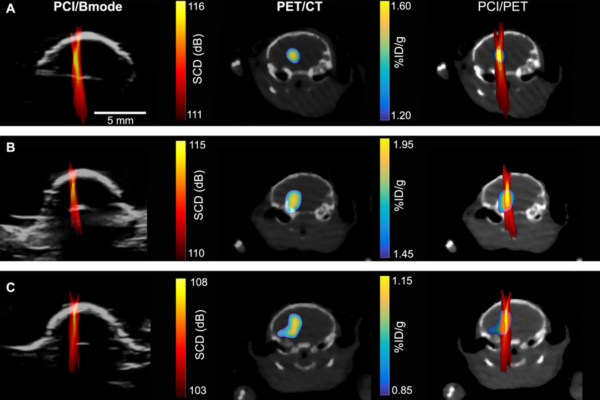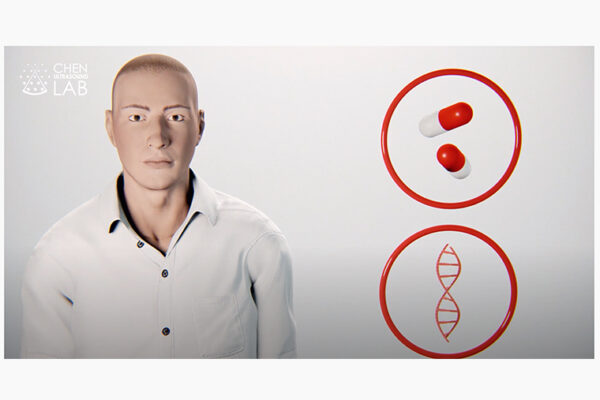Finding new methods to treat human brain disorders is one of the top priorities of the National Institutes of Health (NIH)’s ambitious BRAIN Initiative. To find a noninvasive tool to treat such disorders that is equally or more effective than current standards is a kind of holy grail for neuroscience, and a biomedical engineer at Washington University in St. Louis has it in her sights.

Hong Chen, associate professor of biomedical engineering at the McKelvey School of Engineering and of radiation oncology at the School of Medicine, plans to develop and validate an incisionless treatment delivery method —named iSonogenetics — in animals with a three-year $2.1 million grant from the NIH’s National Institute of Mental Health. The uniquely structured grant provides initial support for three years to develop the tool, with the expectation that Chen will then receive a new two-year grant to validate its performance.
Chen will collaborate with Ilya Monosov, associate professor of neuroscience and co-principal investigator, and three other faculty members from the School of Medicine: Joel Perlmutter, MD, professor of neurology; Buck Rogers, professor of radiation oncology; and Larry Snyder, MD, PhD, professor of neuroscience.
Read more on the engineering website.


